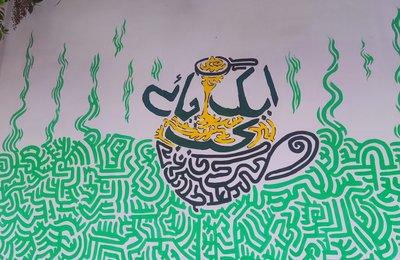 Both the formal and informal peacebuilding aspects of the South Asian Association for Regional Cooperation (SAARC) are often overlooked in the majority of articles and scholars papers written on peace in South Asia. Therefore, I would like to highlight some of the crucial features of SAARC vis-à-vis achieving greater understanding and cooperation in the region, and thus promoting peace. It is an important juncture in the history of SAARC as 2010 marked the silver jubilee of organisation.
Both the formal and informal peacebuilding aspects of the South Asian Association for Regional Cooperation (SAARC) are often overlooked in the majority of articles and scholars papers written on peace in South Asia. Therefore, I would like to highlight some of the crucial features of SAARC vis-à-vis achieving greater understanding and cooperation in the region, and thus promoting peace. It is an important juncture in the history of SAARC as 2010 marked the silver jubilee of organisation.
At the 16th SAARC summit held in Thimpu, Bhutan, the leaders of the SAARC member states signed the 37 point “Thimpu Silver Jubilee Declaration” . The declaration is the outcome of a regional vision towards a green and happy South Asia. It was a first ever SAARC Summit held in Bhutan, and an important one, producing two separate declarations to boost regional cooperation and jointly address the implications of climate change.
Formally, the SAARC forum is prohibited from addressing any bilateral or contentious issues between its member states, but the forum couldn't ignore the value of regional cooperation in addressing the menace of terrorism. Soon after SAARC came into being in 1985, The SAARC Regional Convention on Suppression of Terrorism was signed in 1987. To reaffirm their commitment to jointly fighting terrorism, the Additional Protocol to the SAARC Regional Convention on Suppression of Terrorism was signed in 2004. At the summit in Bhutan, the leaders once again condemned terrorism in all its forms and manifestations and agreed to address this issue with greater cooperation in the region. In this regard, the SAARC countries are holding meetings of SAARC Home and Interior Ministers to review the implementation of relevant SAARC commitments, such as the SAARC Convention on Mutual Assistance in Criminal Matters , signed in 2008. These are not just verbal and written commitments, as SAARC is on its way to take concrete measures to root out terrorism from South Asia.
There have been debates on establishing, as part of the SAARC process, a regional police outfit similar to Interpol. In fact, the proposal on setting up a SAARCPOL has already been put forward by the government of Nepal at the SAARC Secretariat in Kathmandu. SAARC has also organized the “First Conference of SAARC Police Chiefs” in Islamabad on 17 April 2008. Furthermore, the SAARC has established the SAARC Terrorist Offences Monitoring Desk (STOMD) in Colombo, Sri Lanka. STOMD commenced its operations in 1995 with the objectives to collate, analyse and disseminate information on terrorist offences, tactics, strategies and methods to the SAARC member states. Since then, STOMD has been active in organizing activities to enhance cooperation to combat terrorism.
For anything to realistically work for SAARC and all of its member states, the concerns and issues of India and Pakistan are often the determining factors. Over the course of past 25 years for SAARC, the India-Pakistan rivalry has often constrained regional cooperation in South Asia, causing cynics to start criticising SAARC for not being able to ease tensions between its member states. However, one should not overlook the fact that SAARC forums, though informally, have been providing a forum for talks between the leaders and representatives of India and Pakistan. Such talks have often helped in decreasing the tension between the two countries. An example is of the Prime Ministers from India and Pakistan meeting on the sidelines of the SAARC Summit in Thimpu. Dr. Manmohan Singh of India and Yousuf Raza Gilani of Pakistani met for about an hour and their discussion was followed by a meeting of foreign ministers from both countries. The conclusion of these successive meetings was an informal agreement to resume the process of composite dialogue to address various bilateral issues, including the Kashmir dispute and cross-border terrorism. The composite dialogues have faced hiccups due to allegations of cross-border terrorism, and therefore they have been discontinued since the 2008 terrorist attacks in Mumbai.
A secretary-level meeting was held in Islamabad in June 2010 as the follow up of the meeting between the Prime Ministers of both countries on the sidelines of the SAARC Summit in Thimphu. For this meeting Indian Foreign Secretary Nirupama Rao travelled to Islamabad to meet her counterpart Salman Bashir to prepare the agenda for a meeting between the foreign ministers of India and Pakistan. Once again a SAARC forum provided a breakthrough towards better relations between the two countries. Hopefully governments of India and Pakistan are likely to soon resume the process of composite peace dialogues. Keeping these developments in mind, SAARC’s contribution towards peace in the region, even though informally, should be acknowledged and encouraged.
Zahid Shahab Ahmed, Pakistan Local Correspondent, 7 July 2010







